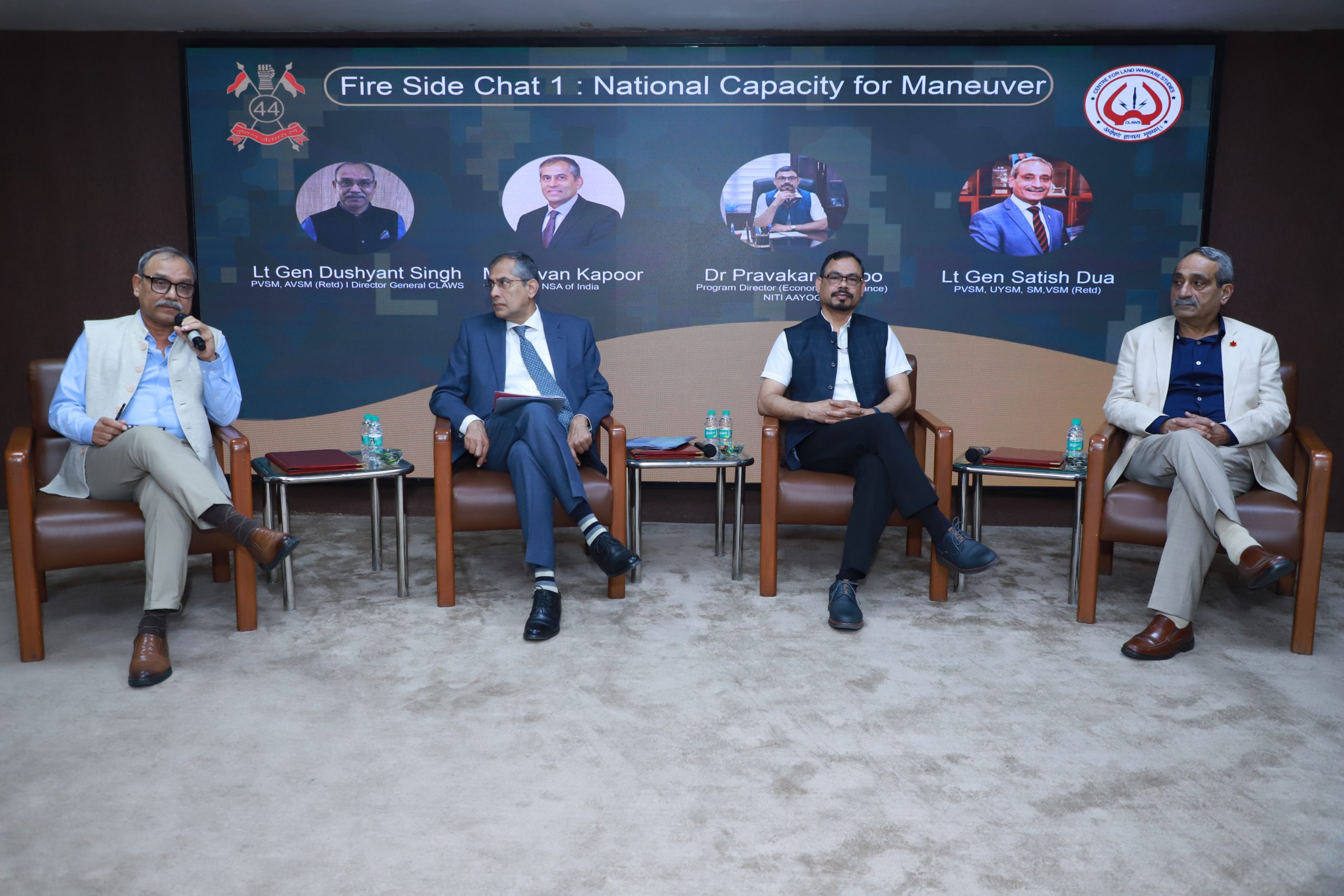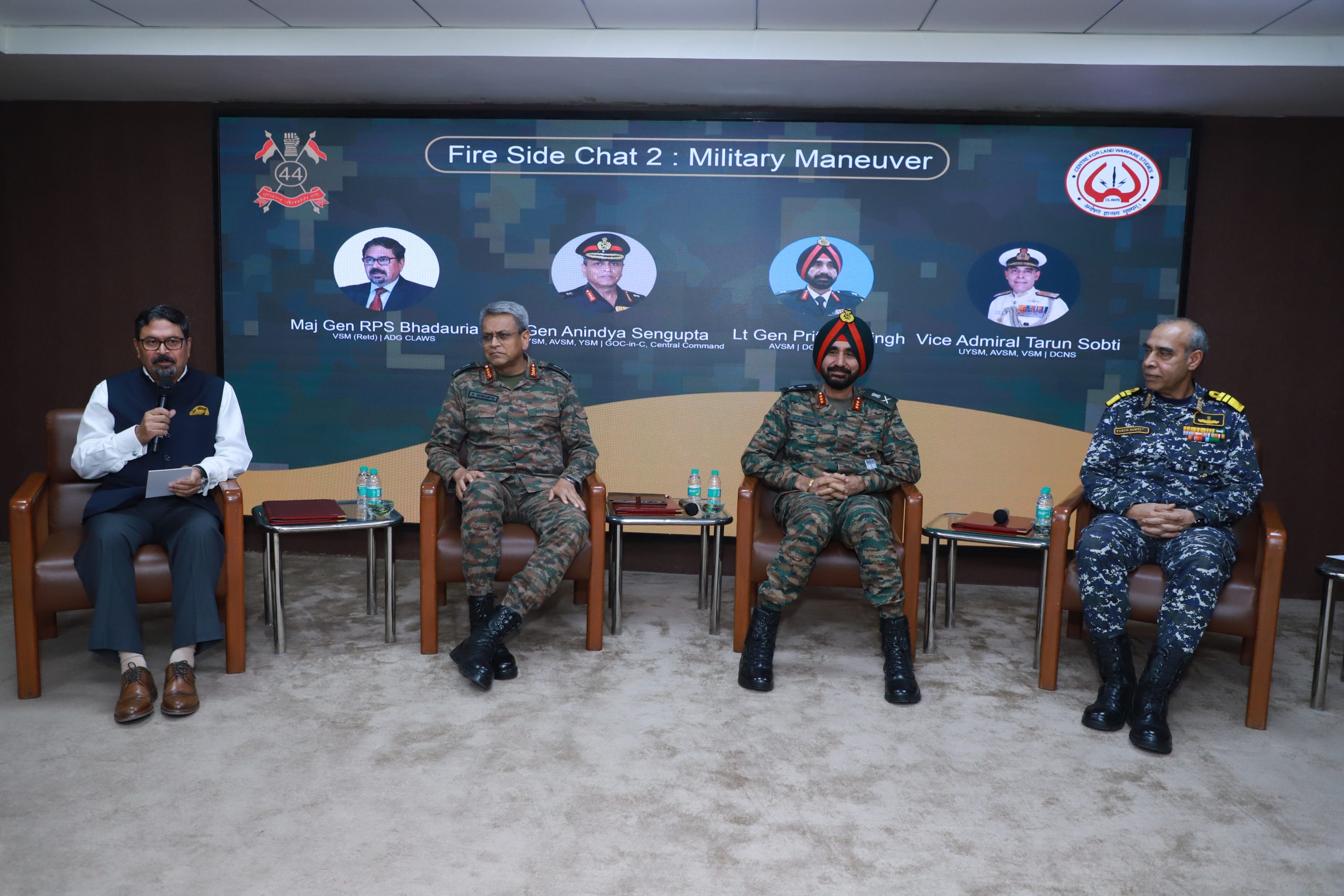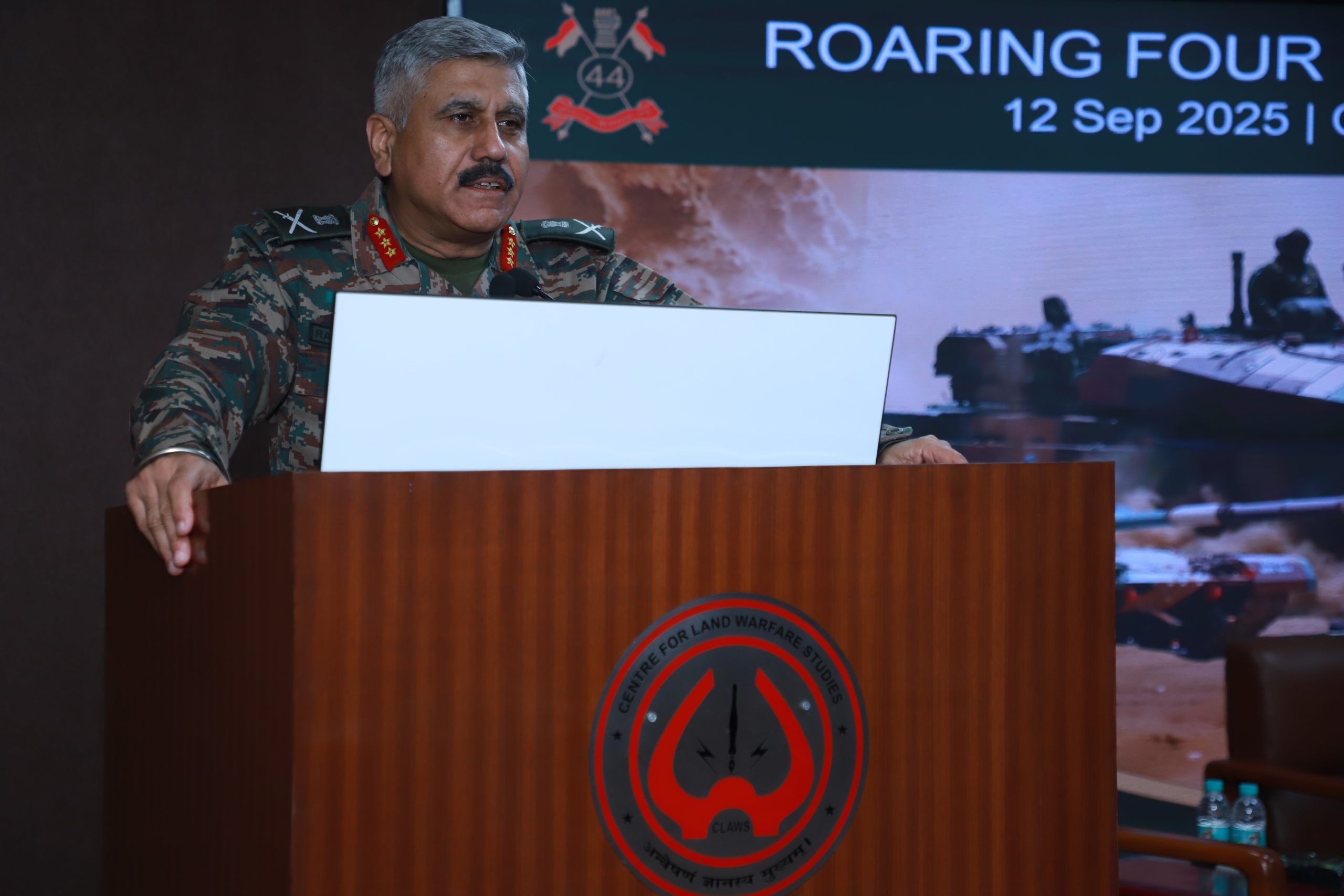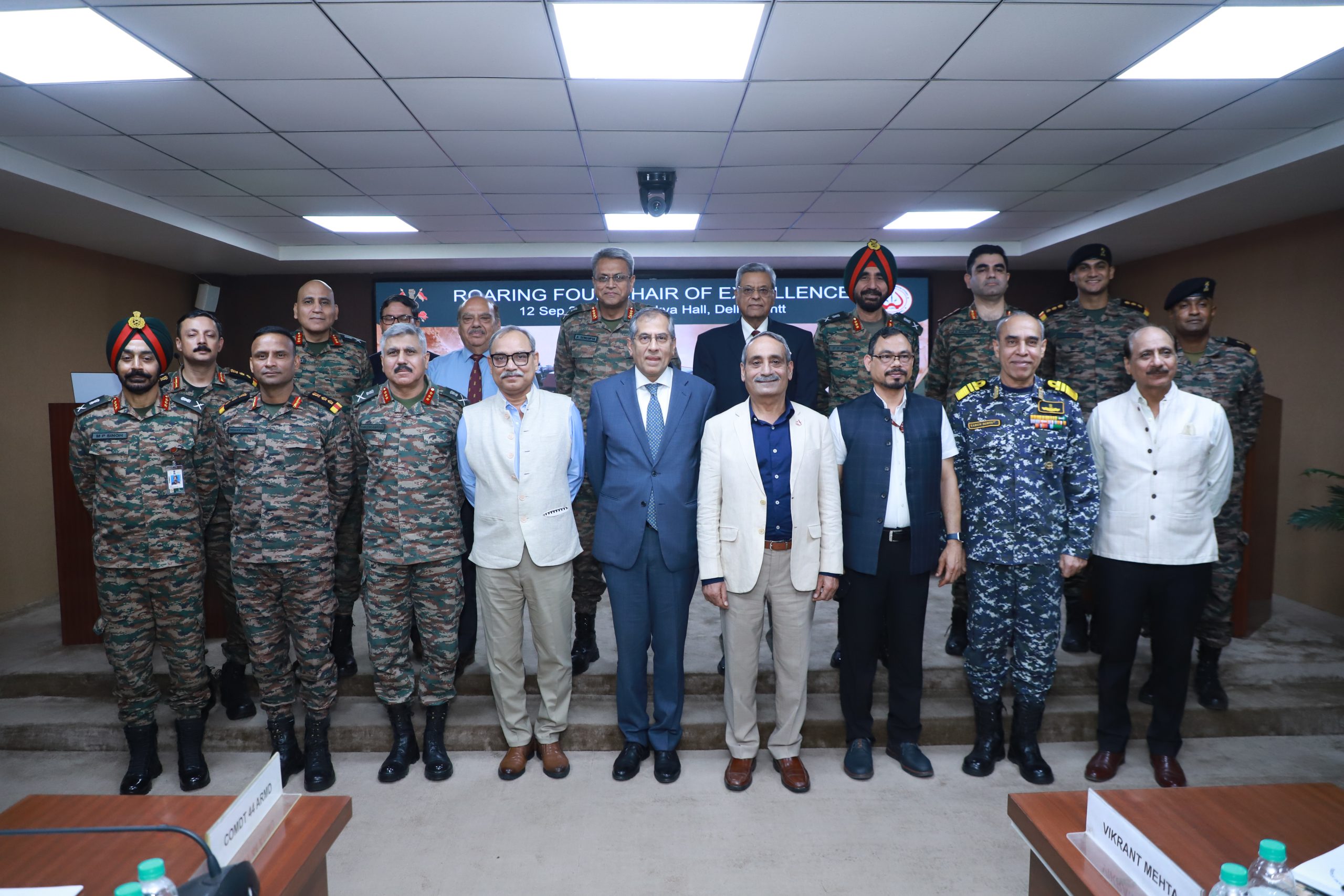EXECUTIVE SUMMARY
The Seminar on ‘National Capacity of Maneuver’ was convened with the objective of assessing and enhancing India’s comprehensive maneuver capabilities across strategic, operational, and tactical levels. The concept of maneuver, while traditionally associated with military movement and operations, was discussed in a broader national security framework encompassing diplomatic, informational, military, and economic dimensions (often summarised as DIME). The seminar brought together key stakeholders from the Indian Armed Forces, strategic thinkers, academics and policymakers to evaluate current capacities, identify challenges, and explore pathways for holistic national preparedness and response.
The core theme revolved around how maneuver can be integrated into India’s national power projection strategy to secure its interests in an increasingly complex regional and global environment. Key discussions during the seminar highlighted the need for synergy between military capability and national-level decision-making. The concept of strategic maneuver was explored in the context of India’s geopolitical realities— especially vis-à-vis China and Pakistan—and the need to maintain deterrence while retaining escalation dominance. The importance of credible power projection, forward presence, and rapid force mobility were underlined, particularly with regard to border areas, island territories, and maritime zones of interest.
From an operational standpoint, the Armed Forces emphasised the importance of jointness and integration across the services to ensure seamless maneuver capability. The importance of the establishment of Theatre Commands and Jointness were recognised as a vital enabler. Modernisation of platforms, infrastructure development in border areas, and induction of new technologies such as artificial intelligence, cyber capabilities, and space assets were seen as critical force multipliers.
Another significant thread in the seminar was the role of economic and technological maneuver. India’s ability to leverage its economy for strategic ends—through trade, strategic investments, and self-reliance in defence production—was emphasised.
The importance of diplomatic and informational maneuver was deliberated in detail. Strategic communication and perception management were discussed as tools to shape the narrative and protect national interests. India’s role in multilateral platforms, regional groupings (like QUAD and ASEAN), and global governance bodies was acknowledged as critical to expanding strategic maneuver space.
In conclusion, the seminar underscored that national capacity of maneuver is not solely a military construct but a multi-domain capability, requiring whole-of-nation approaches. For India to effectively maneuver in an uncertain and contested strategic environment, it must harmonise its political will, economic strength, technological base, and military power. The seminar recommended the formulation of a National Maneuver Strategy, greater civil-military integration, and the establishment of institutional mechanisms to regularly assess and enhance maneuver capacity. This initiative reflects India’s evolving strategic thought and the imperative to transition from reactive postures to proactive, capability-driven national strategies in pursuit of its long-term interests.




















